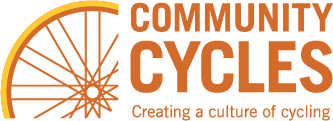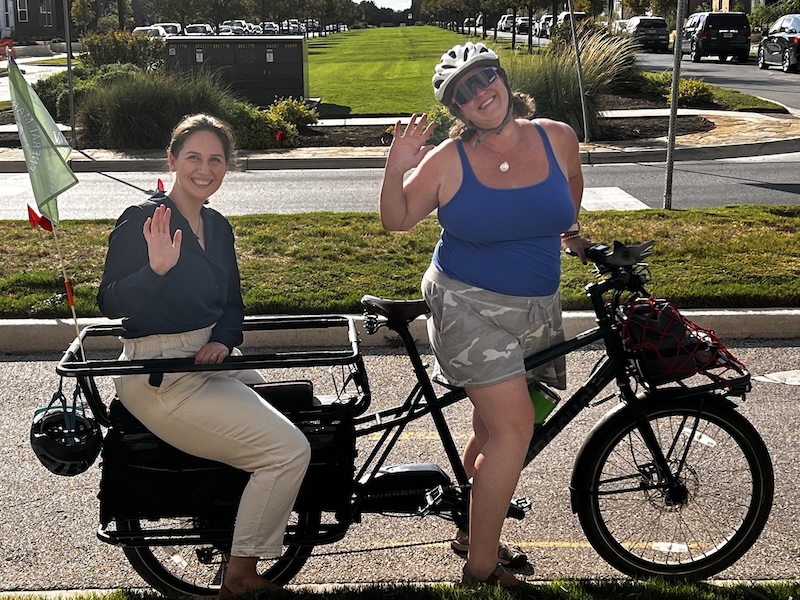Boulder’s daily in-commutes often stretch well beyond the comfort zone of traditional bicycling, with many workers traveling 15 miles or more each way. Through a grant from the Colorado Department of Transportation, the 2023-2024 Ride By EBike campaign set out to change that perception — and the habits behind it — by showing that longer-distance commuting is not only possible but pleasant with the help of electric-assist bicycles and safe, connected multi-use paths.
Through a combination of targeted advertising, social media outreach, and practical resources like the EBike Commuter Hub, the campaign aimed to spark a cultural shift toward sustainable, active transportation for all income levels and abilities.
Reaching Boulder’s Commuters Where They Are
Broadly, our target audience was 60,000 non-resident employees who in-commute into Boulder.
With our chosen advertising company, we broke that target down into these two groups to work with:
- On-the-Fencers who may be older and reluctant to change, but have greater financial freedom to buy a bike to change their habits.
- Essential Workers who commute every day they work, with the idea that there’s another option that doesn’t involve sitting in traffic, and may relieve them of the cost of parking in Boulder.
- In addition to these groups, we refreshed our ads in mid-2024 with the addition of a third group, those who are concerned about air quality in the midst of poor air quality days in summer and fall.
We achieved a broad reach through our online advertising and social media campaigns, ensuring that our messaging extended to a significant audience. Although we cannot specifically determine how many of these individuals commute into Boulder, our efforts successfully reached hundreds of thousands of people. This widespread exposure played a key role in promoting our overarching goal: encouraging residents throughout the greater Boulder area to embrace biking and e-biking as preferred modes of transportation.
We also ran a survey across 1.5 years to measure results. The ultimate question was “Did you use your car less this year than the previous year?” 69% of respondents said “yes”, indicating that they are driving less and using a bike or e-bike more for errands and commuting.
Survey results also demonstrated:
- an increase in the number of days per week e-bikes were used, year over year.
- an increase in the length of commute by e-bike, year over year.
- an increase in the number of miles e-bikers rode in a typical day, year over year.
- an increase on the number of days per week that e-bikes are used by owners, year over year
- an overview of how e-bike owners use their e-bikes, like commuting, errands and social occasions, exercise, etc.
We were truly inspired by the testimonials and photos shared in our survey, which highlighted the transformative power of e-bikes for commuting. Participants shared how switching to e-bikes not only made their daily commutes more efficient and enjoyable but also reduced stress and frustration typically associated with driving.
Beyond the benefits of commuting, respondents emphasized how their e-bikes had positively impacted their overall quality of life. They spoke of newfound freedom and flexibility. Some use their e-bikes for errands, recreation, or exploring areas they might not have visited otherwise. Others noted the physical and mental health improvements they experienced, from increased activity levels to the sheer joy of
being outdoors more often.
Lasting Impact
Ride By EBike reached hundreds of thousands of people across Boulder County and beyond, inspiring measurable change in commuting habits. Survey results showed that nearly seven in ten participants drove less in 2024 than the year before, with many expanding their rides from short local trips to regional commutes. Testimonials revealed more than just a transportation shift — riders reported greater freedom, reduced stress, improved health, and a stronger connection to their community. By breaking down perceived barriers to long-distance cycling, Ride By EBike didn’t just market e-bikes; it reshaped how people think about getting to work, moving the region one step closer to a cleaner, healthier, and more connected future




